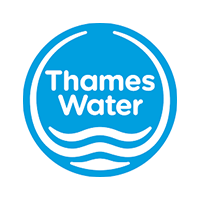February 2018
Thames Water launch their Water Resources Management Plan Consultation
Thames Rivers Trust (TRT) has been represented on the TW Water Resources Forum, for both the general and technical sessions for the past 4 years.
We have had ample opportunity to comment regularly on the development of the draft WRMP and the longer term plan. We will therefore not be commenting on the plan in detail.
Overall TW is to be congratulated on adopting a detailed approach to the development of its strategy utilising best practice, advanced modelling techniques, independent expertise and comprehensive stakeholder dialogue. This reflects the complex status of the Thames river basin facing unprecedented demand in the future with limited resource options.
It is therefore all the more surprising, and disappointing, that having brought along a disparate group of stakeholders to follow, and generally support, a logical development of the resources strategy, the company has made a very late in the day, apparently at Board level decision, to delay the development of a major strategic resource i.e. Abingdon Reservoir, a further decade into the future.
In its place the company has introduced some high risk demand management measures involving challenging targets for leakage and meter penetration and incentive based efficiency targets. Whilst Thames should be congratulated on adopting ambitious demand management targets there is a high risk in dependence on customer behaviour and the company does not have a successful track record in this field. Furthermore there was very little discussion on the positioning of these options in the general and technical workshops where Thames might have benefitted from stakeholder expertise.
The main problem with these high risk features is that there are no contingency plans should they fail. This means that any shortfall in the reduction in water use expected is likely to have a deleterious effect on the environment.
The delayed appearance of the proposed Abingdon Reservoir will also mean the continuation of informal planning blight for unfortunate residents, reduced ability to help regulate the main river, lack of upstream storage in the face of increased winter flooding, and reduced capability in easing the pressure on over-abstracted chalk streams. It was only last November at the Annual Stakeholder Review meeting that TW CEO Stuart Robertson told the audience that it was his passionate wish to cease abstraction from such rivers as soon as possible.
The other major concern is that of the Teddington Direct River Abstraction scheme. There appear to be several unresolved environmental issues and it seems to us that the future of this key project cannot be guaranteed.
Having been involved in the water resources strategy from the beginning of the process it is unfortunate to end on a critical note. It seems to us that Thames has admirably followed its own rigorous procedures all the way through, only to diverge at the very end. The WRMP and its longer term version are meant to be for the benefit of the customer and the environment, rather than succumbing to short term political pressures.
To view the full Thames Water WRMP. To give feedback to the public consultation, which closes 29th April 2018.


